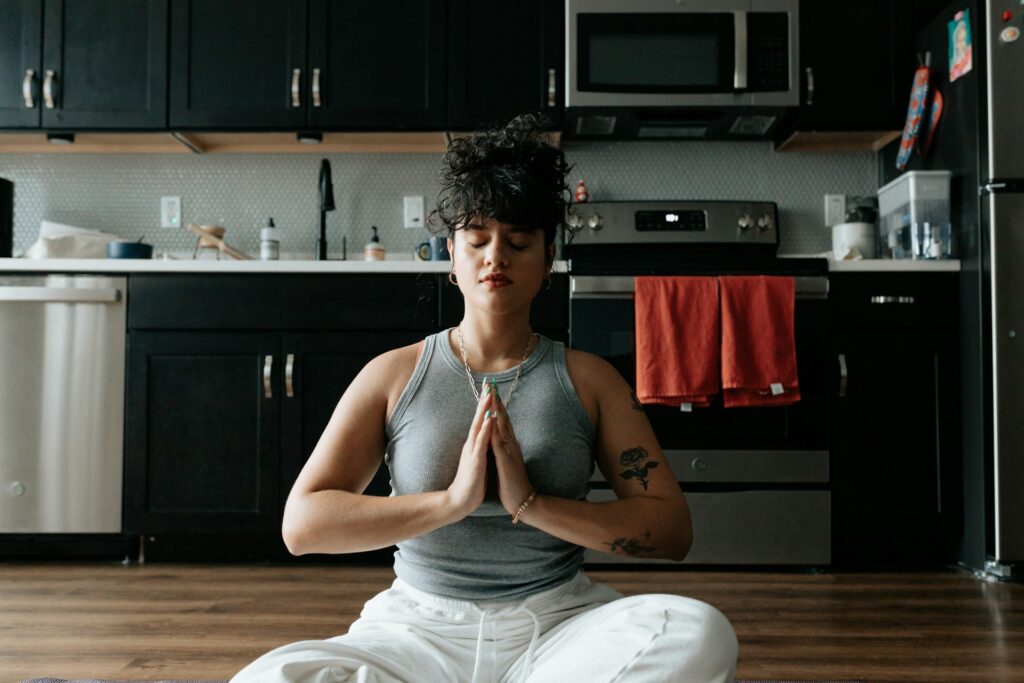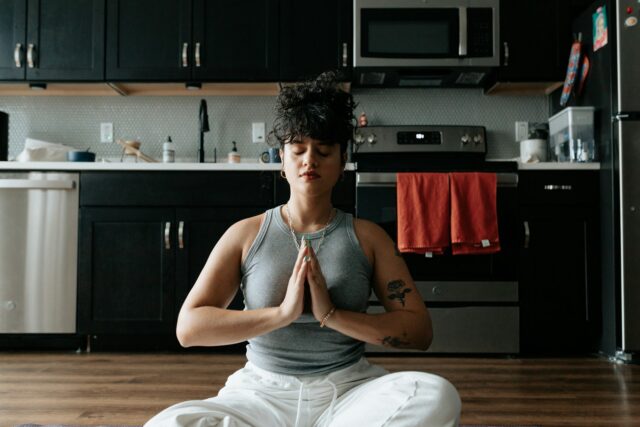In today’s fast-paced world, stress has become a common part of daily life, taking a toll on our mental and physical well-being. However, by incorporating stress-busting techniques into your routine, you can cultivate a calmer mind and body, leading to greater resilience and overall happiness. Explore these effective strategies to combat stress and find inner peace.
Step 1: Practice Deep Breathing
 Source: Unsplash
Source: Unsplash Deep breathing exercises are a simple yet powerful way to reduce stress and promote relaxation. Try diaphragmatic breathing by inhaling deeply through your nose, filling your lungs with air, and exhaling slowly through your mouth. Repeat this process several times, focusing on the sensation of your breath as it enters and leaves your body.
Step 2: Engage in Mindfulness Meditation
 Source: Unsplash
Source: Unsplash
Mindfulness meditation involves bringing your attention to the present moment without judgment, allowing you to cultivate awareness and acceptance of your thoughts and feelings. Set aside time each day to practice mindfulness meditation, focusing on your breath, bodily sensations, or the sounds around you. Over time, you’ll develop greater mindfulness and resilience in the face of stress.
Step 3: Move Your Body
 Source: Unsplash
Source: Unsplash
Physical activity is a natural stress reliever, helping to release endorphins and reduce tension in the body. Incorporate regular exercise into your routine, whether it’s going for a walk, practicing yoga, or hitting the gym. Find activities that you enjoy and make them a priority, knowing that movement is essential for maintaining both physical and mental health.
Step 4: Prioritize Self-Care
 Source: Unsplash
Source: Unsplash
Self-care is crucial for managing stress and maintaining balance in your life. Set aside time each day to engage in activities that nourish your body, mind, and soul, whether it’s taking a relaxing bath, reading a book, or spending time in nature. Remember that self-care is not selfish but necessary for your overall well-being.
Step 5: Cultivate Gratitude
 Source: Unsplash
Source: Unsplash
Cultivating gratitude can shift your perspective and help you find joy in the present moment, even during challenging times. Start a gratitude journal and write down three things you’re grateful for each day, no matter how small. Practice expressing gratitude to yourself and others regularly, fostering a sense of appreciation and contentment.
Step 6: Establish Boundaries
 Source: Unsplash
Source: Unsplash
Setting boundaries is essential for protecting your mental and emotional health and reducing stress. Learn to say no to commitments that drain your energy and prioritize activities that bring you joy and fulfillment. Communicate your boundaries clearly to others and advocate for your needs without guilt or apology.
Step 7: Seek Support
 Source: Unsplash
Source: Unsplash
Don’t be afraid to reach out for support when you’re feeling overwhelmed by stress. Whether it’s talking to a trusted friend or family member, seeking guidance from a therapist or counselor, or joining a support group, know that you’re not alone. Sharing your feelings and experiences with others can provide comfort and validation.
Step 8: Practice Progressive Muscle Relaxation
 Source: Unsplash
Source: Unsplash
Progressive muscle relaxation is a relaxation technique that involves tensing and releasing different muscle groups in your body to reduce physical tension and promote relaxation. Start by tensing the muscles in your feet and slowly working your way up to your head, focusing on each muscle group for a few seconds before releasing the tension. Notice the difference in how your body feels as you let go of tension and relax deeply.
Incorporating these stress-busting techniques into your daily routine can help you cultivate a calmer mind and body, leading to greater resilience and overall well-being. By practicing deep breathing, engaging in mindfulness meditation, moving your body, prioritizing self-care, cultivating gratitude, establishing boundaries, seeking support, and practicing progressive muscle relaxation, you can effectively manage stress and find inner peace amidst life’s challenges.





